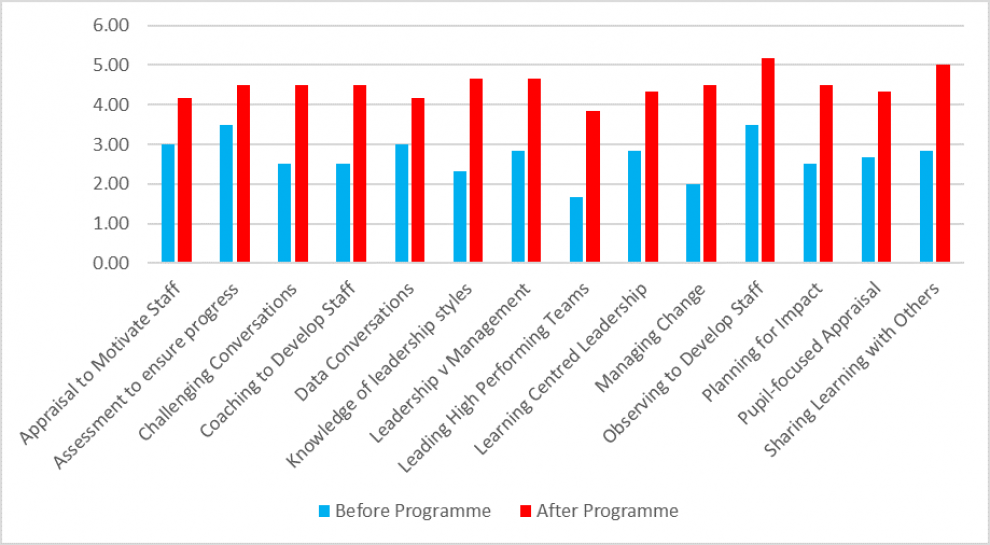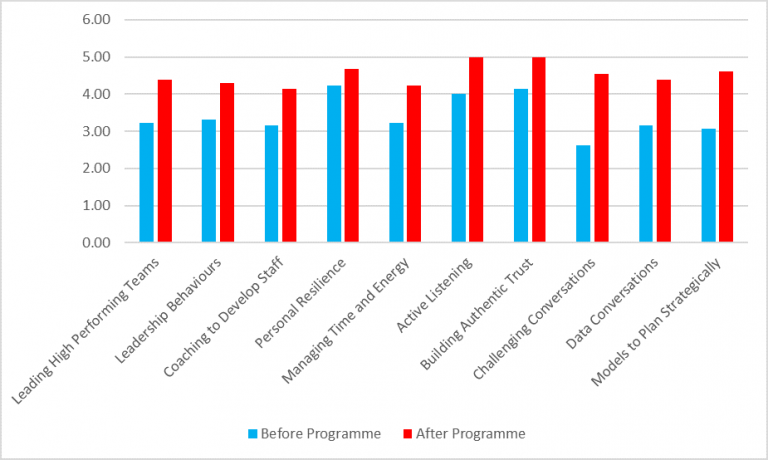Middle Leadership Development for the Alpha Plus Group of schools
Leadership training for pastoral and curriculum middle leaders.

12 July 2019
Background
The UCL Centre for Educational Leadership began a relationship with the Alpha Plus Group (APG) in 2017. A family of 19 independent schools, mainly clustered around London and Cambridge, span a whole range of ages, from pre-preparatory to sixth form. APG approached the UCL Centre for Educational Leadership because of its reputation for co-designing development programmes with clients and because of the research base that can be drawn upon at IOE.
Challenge
13 pastoral leaders from 7 APG schools and 6 curriculum middle leaders from 4 schools were recruited for the project.
Whether newly appointed in their roles or fairly experienced, they expressed the challenges they faced: tough conversations with colleagues and parents; making their teams cohere; communicating in busy environments; and reacting to events rather than shaping them.
Middle leaders frequently arrive in their roles with little prior experience or training. Typically, they are strong teachers with good command of their own classrooms; often they are already respected in their staffroom. But they receive little guidance in holding others to account or in how to get the most from their teams.
Consequently, middle leaders often report that they feel little sense of agency, that they merely get to enact policies and wishes of the leaders above them. Pastoral and curriculum middle leaders have distinct roles in schools: our programmes catered to these distinctions while also focusing on the aspects which are common.
Solution
The pastoral leaders experienced a two-day programme in October and November, with a follow-up in March. Their sessions covered teamwork and pastoral leadership; managing yourself as a pastoral leader; coaching others and active listening; managing challenging pastoral conversations; working strategically; using data to promote excellent pastoral outcomes.
Organisational change theories, principles of coaching from Whitford and Egan, and approaches to tough conversations suggested by Block and Scott were frequently called upon.
The curriculum leaders followed a four-day programme spread over the academic year, and completed a Leadership for Change project in their school. This, alongside a reflective portfolio, helped them to connect their learning in the sessions with their roles in school. Their programme covered the differences between leadership and management, enacting change, and gaining improvements in teaching through lesson observation, coaching and appraisal.
Inspired by Nancy Love’s work, an activity modelling ‘hosting a data conversation’ was staged. This programme ended with a presentation of posters, encapsulating the differences they made through their leadership for change projects.
Impact
The curriculum leaders implemented changes in their schools with immediate impact. They spanned a diverse range: a wrap-around morning clubs programme; flipped teaching for year 4 and 5 Maths; raising awareness of mental health among students and staff; a revision of behaviour management; tracking progress in history in year 2; a scholarship programme for KS2 MFL pupils.
Across every programme aim, these middle leaders expressed a marked improvement in their confidence levels. Apart from enjoying the facilitation and the opportunity to work together, they gained skills in implementing new initiatives, they found themselves using the coaching and difficult conversation approaches with their colleagues, and they learned about principles of appraisal which will be useful in the next stages of their careers.
Chart showing raised confidence among curriculum leaders after programme:

The confidence of the pastoral leaders also improved across all programme areas, even among those with rich previous experience. One participant’s experience was typical for many: ‘[I have] more confidence in how to have difficult conversations, understanding the importance of thinking about the other person’s perspective before a challenging conversation. [There were] lots of strategies on how to better manage my time. [I have] much more confidence in how to better lead my pastoral team.’ Many said that they were managing their time, and that of their colleagues, differently, e.g. ‘allowing tutors to be tutors, not shelf-stackers.’ Another said that he was ‘thinking more about why I do things and the impact they have, rather than just doing.’
Chart showing raised confidence among pastoral leaders after programme:

Both middle leader programmes understand that leaders act through colleagues, that it is a collaborative endeavour for team-builders rather than heroes. As one said: ‘It's teamwork. What works well in the classroom should work well for leadership too.’
 Close
Close

